"A Burning is the most devastating and important novel I’ve read in at least 10 years."
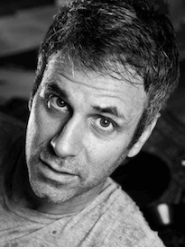
We delve into books for so many different reasons: guidance, knowledge, curiosity and oftentimes to lose ourselves in a captivating tale that can take us to the farthest stretches of our imagination. Esalen News invites our faculty to share what’s on their nightstand and why.
Set in contemporary India, Megha Majumdar's powerful debut novel, A Burning, follows the threads of three disparate characters as their lives become knotted together in the wake of tragedy. At the center of it all is Jivan, an English tutor from the slums wrongly accused of orchestrating a train bombing in Bengal. Esalen faculty and author Steve Almond shares his insights on the book he found to be a true “page-turner.”
Esalen News: What drew you to the book?
Steve Almond: I was assigned to review the book, actually, along with another novel. As soon as I started reading A Burning, I realized it was spectacular, and asked the editor to allow me to focus on it alone.
What did you find most inspiring?
The book is a social novel that forces us to see and empathize with the dispossessed, and to see how a culture rooted in exploitation erodes people’s morality.
What other aspects really stood out as you read the book?
The prose is remarkable: simple, direct, precise, lyric. Passages such as: If the police didn’t help ordinary people like you and me, if the police watched them die, doesn’t that mean, I wrote on Facebook, that the government is also a terrorist? Or, I wrote a dangerous thing, a thing nobody like me should ever think, let alone write.
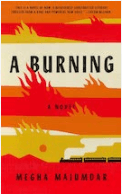
What other things did you learn?
I learned a lot about what it’s like to live in a country where one false move—in this case, posting a comment on Facebook—can cost you your life.
How would you sum up the book in a few words?
It’s the most devastating and important novel I’ve read in at least 10 years.
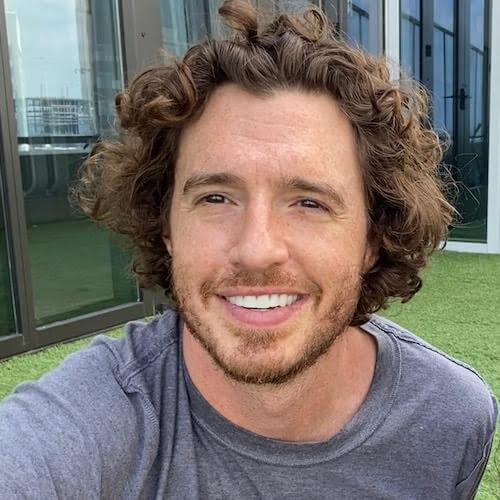
“Remembering to be as self compassionate as I can and praying to the divine that we're all a part of.”
–Aaron
“Prayer, reading, meditation, walking.”
–Karen
“Erratically — which is an ongoing stream of practice to find peace.”
–Charles
“Try on a daily basis to be kind to myself and to realize that making mistakes is a part of the human condition. Learning from our mistakes is a journey. But it starts with compassion and caring. First for oneself.”
–Steve
“Physically: aerobic exercise, volleyball, ice hockey, cycling, sailing. Emotionally: unfortunately I have to work to ‘not care’ about people or situations which may end painfully. Along the lines of ‘attachment is the source of suffering’, so best to avoid it or limit its scope. Sad though because it could also be the source of great joy. Is it worth the risk?“
–Rainer
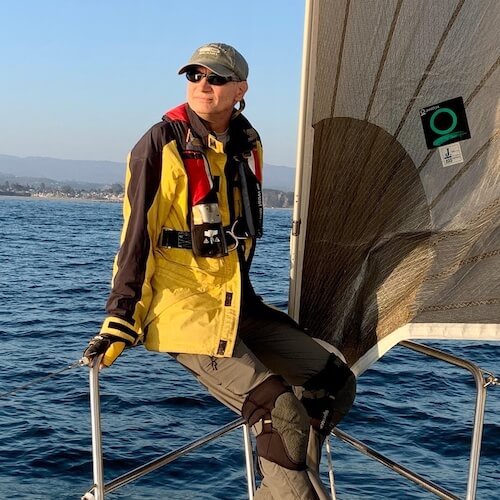

“It's time for my heart to be nurtured on one level yet contained on another. To go easy on me and to allow my feelings to be validated, not judged harshly. On the other hand, to let the heart rule with equanimity and not lead the mind and body around like a master.”
–Suzanne
“I spend time thinking of everything I am grateful for, and I try to develop my ability to express compassion for myself and others without reservation. I take time to do the things I need to do to keep myself healthy and happy. This includes taking experiential workshops, fostering relationships, and participating within groups which have a similar interest to become a more compassionate and fulfilled being.“
–Peter
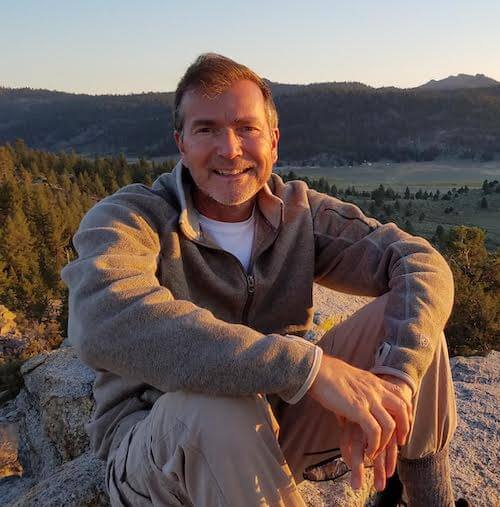
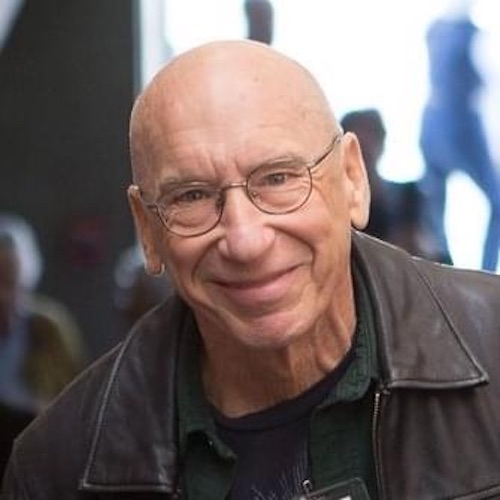
“Self-forgiveness for my own judgments. And oh yeah, coming to Esalen.”
–David B.
“Hmm, this is a tough one! I guess I take care of my heart through fostering relationships with people I feel connected to. Spending quality time with them (whether we're on the phone, through messages/letters, on Zoom, or in-person). Being there for them, listening to them, sharing what's going on with me, my struggles and my successes... like we do in the Esalen weekly Friends of Esalen Zoom sessions!”
–Lori

“I remind myself in many ways of the fact that " Love is all there is!" LOVE is the prize and this one precious life is the stage we get to learn our lessons. I get out into nature, hike, camp, river kayak, fly fish, garden, I create, I dance (not enough!), and I remain grateful for each day, each breath, each moment. Being in the moment, awake, and remembering the gift of life and my feeling of gratitude for all of creation.”
–Steven
“My physical heart by limiting stress and eating a heart-healthy diet. My emotional heart by staying in love with the world and by knowing that all disappointment and loss will pass.“
–David Z.
Today, September 29, is World Heart Day. Strike up a conversation with your own heart and as you feel comfortable, encourage others to do the same. As part of our own transformations and self-care, we sometimes ask for others to illuminate and enliven our hearts or speak our love language.
What if we could do this for ourselves too, even if just for today… or to start a heart practice, forever?
"A Burning is the most devastating and important novel I’ve read in at least 10 years."

We delve into books for so many different reasons: guidance, knowledge, curiosity and oftentimes to lose ourselves in a captivating tale that can take us to the farthest stretches of our imagination. Esalen News invites our faculty to share what’s on their nightstand and why.
Set in contemporary India, Megha Majumdar's powerful debut novel, A Burning, follows the threads of three disparate characters as their lives become knotted together in the wake of tragedy. At the center of it all is Jivan, an English tutor from the slums wrongly accused of orchestrating a train bombing in Bengal. Esalen faculty and author Steve Almond shares his insights on the book he found to be a true “page-turner.”
Esalen News: What drew you to the book?
Steve Almond: I was assigned to review the book, actually, along with another novel. As soon as I started reading A Burning, I realized it was spectacular, and asked the editor to allow me to focus on it alone.
What did you find most inspiring?
The book is a social novel that forces us to see and empathize with the dispossessed, and to see how a culture rooted in exploitation erodes people’s morality.
What other aspects really stood out as you read the book?
The prose is remarkable: simple, direct, precise, lyric. Passages such as: If the police didn’t help ordinary people like you and me, if the police watched them die, doesn’t that mean, I wrote on Facebook, that the government is also a terrorist? Or, I wrote a dangerous thing, a thing nobody like me should ever think, let alone write.

What other things did you learn?
I learned a lot about what it’s like to live in a country where one false move—in this case, posting a comment on Facebook—can cost you your life.
How would you sum up the book in a few words?
It’s the most devastating and important novel I’ve read in at least 10 years.

“Remembering to be as self compassionate as I can and praying to the divine that we're all a part of.”
–Aaron
“Prayer, reading, meditation, walking.”
–Karen
“Erratically — which is an ongoing stream of practice to find peace.”
–Charles
“Try on a daily basis to be kind to myself and to realize that making mistakes is a part of the human condition. Learning from our mistakes is a journey. But it starts with compassion and caring. First for oneself.”
–Steve
“Physically: aerobic exercise, volleyball, ice hockey, cycling, sailing. Emotionally: unfortunately I have to work to ‘not care’ about people or situations which may end painfully. Along the lines of ‘attachment is the source of suffering’, so best to avoid it or limit its scope. Sad though because it could also be the source of great joy. Is it worth the risk?“
–Rainer


“It's time for my heart to be nurtured on one level yet contained on another. To go easy on me and to allow my feelings to be validated, not judged harshly. On the other hand, to let the heart rule with equanimity and not lead the mind and body around like a master.”
–Suzanne
“I spend time thinking of everything I am grateful for, and I try to develop my ability to express compassion for myself and others without reservation. I take time to do the things I need to do to keep myself healthy and happy. This includes taking experiential workshops, fostering relationships, and participating within groups which have a similar interest to become a more compassionate and fulfilled being.“
–Peter


“Self-forgiveness for my own judgments. And oh yeah, coming to Esalen.”
–David B.
“Hmm, this is a tough one! I guess I take care of my heart through fostering relationships with people I feel connected to. Spending quality time with them (whether we're on the phone, through messages/letters, on Zoom, or in-person). Being there for them, listening to them, sharing what's going on with me, my struggles and my successes... like we do in the Esalen weekly Friends of Esalen Zoom sessions!”
–Lori

“I remind myself in many ways of the fact that " Love is all there is!" LOVE is the prize and this one precious life is the stage we get to learn our lessons. I get out into nature, hike, camp, river kayak, fly fish, garden, I create, I dance (not enough!), and I remain grateful for each day, each breath, each moment. Being in the moment, awake, and remembering the gift of life and my feeling of gratitude for all of creation.”
–Steven
“My physical heart by limiting stress and eating a heart-healthy diet. My emotional heart by staying in love with the world and by knowing that all disappointment and loss will pass.“
–David Z.
Today, September 29, is World Heart Day. Strike up a conversation with your own heart and as you feel comfortable, encourage others to do the same. As part of our own transformations and self-care, we sometimes ask for others to illuminate and enliven our hearts or speak our love language.
What if we could do this for ourselves too, even if just for today… or to start a heart practice, forever?
"A Burning is the most devastating and important novel I’ve read in at least 10 years."

We delve into books for so many different reasons: guidance, knowledge, curiosity and oftentimes to lose ourselves in a captivating tale that can take us to the farthest stretches of our imagination. Esalen News invites our faculty to share what’s on their nightstand and why.
Set in contemporary India, Megha Majumdar's powerful debut novel, A Burning, follows the threads of three disparate characters as their lives become knotted together in the wake of tragedy. At the center of it all is Jivan, an English tutor from the slums wrongly accused of orchestrating a train bombing in Bengal. Esalen faculty and author Steve Almond shares his insights on the book he found to be a true “page-turner.”
Esalen News: What drew you to the book?
Steve Almond: I was assigned to review the book, actually, along with another novel. As soon as I started reading A Burning, I realized it was spectacular, and asked the editor to allow me to focus on it alone.
What did you find most inspiring?
The book is a social novel that forces us to see and empathize with the dispossessed, and to see how a culture rooted in exploitation erodes people’s morality.
What other aspects really stood out as you read the book?
The prose is remarkable: simple, direct, precise, lyric. Passages such as: If the police didn’t help ordinary people like you and me, if the police watched them die, doesn’t that mean, I wrote on Facebook, that the government is also a terrorist? Or, I wrote a dangerous thing, a thing nobody like me should ever think, let alone write.

What other things did you learn?
I learned a lot about what it’s like to live in a country where one false move—in this case, posting a comment on Facebook—can cost you your life.
How would you sum up the book in a few words?
It’s the most devastating and important novel I’ve read in at least 10 years.

“Remembering to be as self compassionate as I can and praying to the divine that we're all a part of.”
–Aaron
“Prayer, reading, meditation, walking.”
–Karen
“Erratically — which is an ongoing stream of practice to find peace.”
–Charles
“Try on a daily basis to be kind to myself and to realize that making mistakes is a part of the human condition. Learning from our mistakes is a journey. But it starts with compassion and caring. First for oneself.”
–Steve
“Physically: aerobic exercise, volleyball, ice hockey, cycling, sailing. Emotionally: unfortunately I have to work to ‘not care’ about people or situations which may end painfully. Along the lines of ‘attachment is the source of suffering’, so best to avoid it or limit its scope. Sad though because it could also be the source of great joy. Is it worth the risk?“
–Rainer


“It's time for my heart to be nurtured on one level yet contained on another. To go easy on me and to allow my feelings to be validated, not judged harshly. On the other hand, to let the heart rule with equanimity and not lead the mind and body around like a master.”
–Suzanne
“I spend time thinking of everything I am grateful for, and I try to develop my ability to express compassion for myself and others without reservation. I take time to do the things I need to do to keep myself healthy and happy. This includes taking experiential workshops, fostering relationships, and participating within groups which have a similar interest to become a more compassionate and fulfilled being.“
–Peter


“Self-forgiveness for my own judgments. And oh yeah, coming to Esalen.”
–David B.
“Hmm, this is a tough one! I guess I take care of my heart through fostering relationships with people I feel connected to. Spending quality time with them (whether we're on the phone, through messages/letters, on Zoom, or in-person). Being there for them, listening to them, sharing what's going on with me, my struggles and my successes... like we do in the Esalen weekly Friends of Esalen Zoom sessions!”
–Lori

“I remind myself in many ways of the fact that " Love is all there is!" LOVE is the prize and this one precious life is the stage we get to learn our lessons. I get out into nature, hike, camp, river kayak, fly fish, garden, I create, I dance (not enough!), and I remain grateful for each day, each breath, each moment. Being in the moment, awake, and remembering the gift of life and my feeling of gratitude for all of creation.”
–Steven
“My physical heart by limiting stress and eating a heart-healthy diet. My emotional heart by staying in love with the world and by knowing that all disappointment and loss will pass.“
–David Z.
Today, September 29, is World Heart Day. Strike up a conversation with your own heart and as you feel comfortable, encourage others to do the same. As part of our own transformations and self-care, we sometimes ask for others to illuminate and enliven our hearts or speak our love language.
What if we could do this for ourselves too, even if just for today… or to start a heart practice, forever?